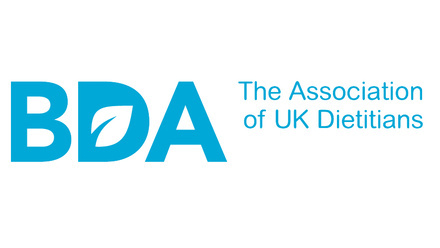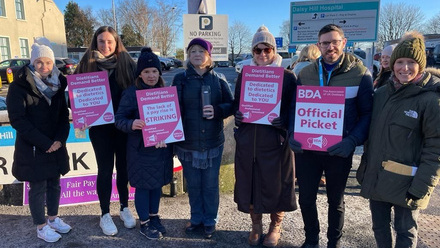The British Dietetic Association's Northern Ireland Board welcomes a food systems approach, however advises it needs to address “all the activities and elements involved in feeding a population”. Nourishing the population is vital as access to healthy food is one of the basic human rights required to maintain physical and mental health & wellbeing. Within the draft Food Strategy Framework, optimising nutrition for the NI population is not given the priority focus it requires.
The BDA NI Board:
- Recommends that high quality, nutritious food must be accessible to everyone in NI. NI currently has the poorest dietary health, relative to other parts of the UK. We therefore strongly advocate for a food system to be put in place that delivers better health outcomes for all.
- Urges that it is paramount for third sector organisations to be closely involved in the implementation of this strategy. Relevant food, nutrition and health professional bodies, including the BDA, have considerable expertise and support to offer to the successful implementation and rollout of the proposed strategy.
- Advises the ambition of the Food Strategy Framework needs to include the goal to improve the public’s availability to healthy food choices. NI consumers need to be supported so the healthier choices are the easier choices for the whole NI population. We strongly recommend the food strategy has a vision for healthy food options to be the normal go to food choices with price, promotion and marketing incentives encouraging healthier choices.
- Requests greater involvement of dietitians to ensure that dietetic expertise of working at a public health level interface is incorporated into the strategy. Dietitians apply the science of nutrition to support people make health maximising food choices throughout life. Dietitians are perfectly placed to interpret the complex science and to communicate national and international guidance to help the public understand what they need to do to improve their own health and that of the environment.
- Strongly recommend BDA and dietitians lead on the development and implementation of evidence-based nutrition education interventions. There needs to be an increase in awareness and training of nutrition - educating both the public and key agents as this will allow consumers to make more informed choices as well as allow food system players to implement more informed measures. Dietitians have specific skills in nutrition education, enabling them to train and mentor others, including those delivering relevant food education.
- Asks for recognition within the strategy for the important role that dietitians play in working within the public sector in advising on healthier processes, portion sizes, promotions and nutritional standards.
- Approves of the ‘Right to Food’ approach. We believe a focus on the ‘Right to Food’ would ensure the broad range of forms of food insecurity are considered. Although poverty is a key reason for food insecurity, it is not the only one, with many people being food insecure for reasons such as reduced physical or mental capacity, poor housing, poor access, social isolation or illness.
- Considers greater emphasis is needed on the promotion and marketing of healthier food choices. Restriction of the promotion and marketing of foods high in fat, sugar or salt are essential to establish healthy environments that encourage and enable people to select and eat a healthy diet more easily. We advocate for an increase in availability and promotion of healthier options at all food outlets (including shops and mobile units) especially in the vicinity of schools.
- Fervently recommends the correct professionals are sought to provide nutrition advice. Many people claim to be experts in nutrition yet have very limited knowledge and offer no protection to the public. Therefore, having engagement with the correct nutrition professionals for implementation and delivery of the food strategy will be essential.
- Raises a great need to engage the public; the consumer voice must be heard. We strongly recommend the need to work alongside communities and people with experience of food insecurity to ensure the food strategy is meaningful, clear and adopted by everyone.
- Urges for interdepartmental government working plans and joined up budgets to fully achieve the ambitions of this food strategy. Without these, we are concerned the innovation and advances indicated will not be accomplished, and instead continuation of a disjointed food system will be the result.
Read the full consultation response by downloading the resource via the link below.






